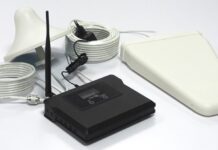According to a new research report from the analyst firm Berg Insight, global shipments of Personal Navigation Devices (PNDs) declined from 33 million units in 2011 to 28 million units in 2012.
Even though part of the decline can be attributed to lower consumer spending in Europe resulting from the continuing sovereign debt crisis, other developments are also affecting the PND market. The installed base of PNDs is already high, especially in mature markets. Retailers have reduced shelf space and marketing for PNDs in favour of higher margin consumer electronics products. Competition from other navigation solutions, notably navigation apps for smartphones is furthermore growing. Over time, PNDs will also start to face more competition from factory installed in-dash navigation systems as more car brands launch next generation low cost systems. Shipments of PNDs are still growing in markets such as Eastern Europe, South America and India, but not fast enough to compensate for the decline in mature markets. Berg Insight therefore forecasts that global PND shipments will decline to about 17 million units in 2017.
Higher smartphone adoption and broader availability of attractively priced services are key factors for growing usage of mobile navigation apps. “The number of mobile subscribers worldwide using a turn-by-turn navigation app on their handset at least once per month grew from 105 million in 2011 to 150 million in 2012”, said André Malm, Senior Analyst, Berg Insight. He adds that more than half of the current active navigation subscriber base uses free apps that are bundled with handsets or service plans from mobile operators. In most developed markets, smartphones from major vendors now come bundled with free navigation apps. Google and Nokia were the first to launch free navigation and have later been followed by Apple and BlackBerry. In response to the proliferation of free navigation apps, many mobile operators have switched to bundled freemium navigation services to offset the cost for end users. App developers and operators are now trying to monetise services by introducing advertising and premium features. Users can customise their app to suit their personal preferences by purchasing new features and content add-ons. Complementing core navigation with features including traffic information, speed camera alerts, parking space information, local search and local offers can make navigation apps useful on a daily basis for more potential customers. “Stimulating usage is important for app developers and mobile operators that want to pursue additional revenues from advertising”, commented Mr Malm.
Download report brochure: Mobile Navigation Services and Devices
About Berg Insight
Berg Insight offers premier business intelligence to the telecom industry. We produce concise reports providing key facts and strategic insights about pivotal developments in our focus areas. Our vision is to be the most valuable source of intelligence for our customers.




















